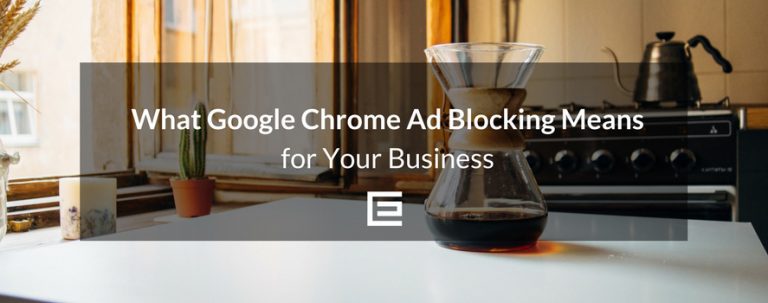In today’s digital age, having a strong online presence is crucial for businesses and individuals alike. One of the most effective ways to improve your visibility on the internet is by blogging. Blogging not only allows you to showcase your expertise and engage with your audience, but it can also significantly increase your Google ranking.
In this article, we will explore the strategies and best practices you can implement to leverage blogging as a powerful tool to increase your Google ranking.
Best SEO Blogging Strategies to Increase Your Google Ranking
1. Quality Content
The foundation of any successful blog is high-quality content. Google’s algorithm values fresh, relevant, and valuable content above all else. To boost your Google ranking through blogging, focus on creating content that addresses the needs and interests of your target audience. Here are some tips for crafting high-quality blog posts:
Keyword Research
Start by conducting keyword research to identify the terms and phrases your audience is searching for. Tools like Google Keyword Planner, SEMrush, and Ahrefs can help you discover relevant keywords.
Unique and Engaging Content
Your blog posts should offer unique insights, solutions, or perspectives. Engage your readers with compelling storytelling, examples, and real-life experiences.
High-Quality Writing
Ensure your writing is clear, concise, and free from grammatical errors. Use headings, subheadings, and bullet points to make your content scannable and easy to read.
Comprehensive Coverage
Go in-depth on topics. Longer, comprehensive articles tend to perform better in search rankings. Aim for articles that are at least 1,500 words or more, when appropriate.
Regular Updates
Consistency is key. Publish new content on a regular schedule to keep your audience engaged and show Google that your website is active.
2. Optimize for SEO
Search engine optimization (SEO) is the practice of optimizing your content and website to rank higher in search engine results pages (SERPs). Proper SEO is critical to improving your Google ranking. Here are some essential SEO techniques to apply to your blog:On-Page SEO:
- Title Tags: Create descriptive and keyword-rich title tags for each blog post.
- Meta Descriptions: Write compelling meta descriptions that encourage users to click on your link.
- Header Tags: Use header tags (H1, H2, H3, etc.) to structure your content and make it more accessible to both readers and search engines.
- Image Optimization: Optimize images by using descriptive filenames and adding alt tags.
Internal and External Linking:
- Internal Links: Include links to relevant articles within your blog posts. This helps readers discover more of your content and improves your website’s overall SEO.
- External Links: Link to reputable sources when citing information or statistics in your blog posts. It adds credibility to your content.
Mobile Optimization:
Ensure your website is mobile-friendly, as Google prioritizes mobile-friendly websites in its rankings.
Page Speed:
Faster-loading websites tend to rank higher. Compress images, enable browser caching, and minimize code to improve your website’s loading speed.
Secure Website (HTTPS):
Google prefers secure websites with HTTPS. Install an SSL certificate to secure your website.
3. Long-Tail Keywords
While targeting popular keywords is essential, don’t overlook the power of long-tail keywords. Long-tail keywords are longer, more specific phrases that often have less competition. They can be highly effective for driving targeted traffic to your blog. By creating content around long-tail keywords related to your niche, you can attract users who are closer to making a purchasing decision.
4. Content Promotion and Sharing
Creating great content is only half the battle. You also need to promote it to maximize its impact on your Google ranking. Here are some ways to promote your blog content effectively:
- Social Media: Share your blog posts on your social media platforms to reach a broader audience. Use relevant hashtags and encourage your followers to share your content.
- Email Marketing: Send out newsletters with links to your latest blog posts to your email subscribers.
- Guest Blogging: Contribute guest posts to reputable websites in your industry. Include links back to your blog within your guest articles.
- Influencer Outreach: Partner with influencers in your niche to share and promote your content to their followers.
- Repurpose Content: Turn your blog posts into other formats, such as videos, podcasts, or infographics, and share them on different platforms.
- Collaborate with Others: Collaborate with other bloggers or businesses for co-authored content or cross-promotions.
5. User Experience
Google takes user experience into account when ranking websites. A positive user experience not only keeps visitors on your site but also encourages them to return. Here are some tips to improve user experience on your blog:
- Mobile Responsiveness: Ensure your website is mobile-friendly and offers a seamless experience on all devices.
- Fast Loading Speed: As mentioned earlier, optimize your website for speed to prevent users from bouncing due to slow load times.
- Easy Navigation: Use clear menus and site structure to help visitors find what they’re looking for easily.
- Readability: Use legible fonts, appropriate font sizes, and proper line spacing to make your content easy to read.
- Visual Appeal: Incorporate relevant images, videos, and other multimedia elements to enhance your blog posts.
6. Analyze Traffic and KPIs
You can’t act with intention or increase your Google ranking if you’re not tracking your website’s content and user behavior. To continually improve your Google ranking through blogging, it’s essential to monitor your efforts and make data-driven decisions.
Utilize tools like Google Analytics and Google Search Console to track your website’s performance. Pay attention to metrics such as organic traffic, click-through rates, bounce rates, and keyword rankings. Regularly review this data to identify what’s working and what needs improvement.
Final Word: Blogging to Increase Your Google Ranking
Blogging is a powerful tool to increase your Google ranking and enhance your online visibility. By consistently producing high-quality content, optimizing for SEO, and promoting your blog effectively, you can climb the search engine rankings and reach a broader audience.
Remember that SEO is an ongoing process, and staying up-to-date with the latest trends and algorithm changes is crucial. With dedication and the right strategies, your blog can become a valuable asset in boosting your Google ranking and achieving your online goals.
If you’re ready to improve your digital presence with quality content crafted by a top-rated SEO agency, contact TheeDigital today by calling 919-341-8901 or using our contact form.
Tags: Content Marketing • Digital Marketing






